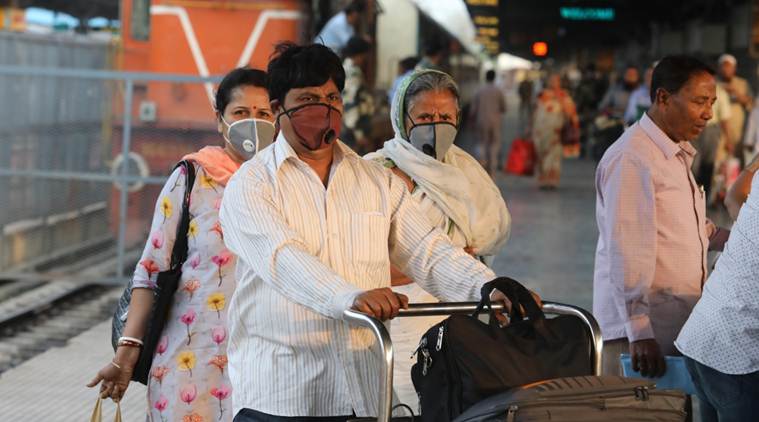 Fifty one people reached Kolkata from Bangladesh by Maitree Express on Saturday. Services have now been suspended. (Express photo/Partha Paul)
Fifty one people reached Kolkata from Bangladesh by Maitree Express on Saturday. Services have now been suspended. (Express photo/Partha Paul)
SAARC leaders are set to hold a summit via video-conference on coronavirus on Sunday, 5 pm, after Pakistan late Friday night accepted Prime Minister Narendra Modi’s proposal for such a meeting.
Islamabad, however, specified that the engagement would be at the level of the Special Assistant to the Pakistan PM on Health. In a tweet, Pakistan Foreign Office Spokesperson Aisha Farooqui said, “We have communicated that SAPM (Special Assistant to Pakistani Prime Minister) on Health (Zafar Mirza) will be available to participate in the video conference of SAARC member countries on the issue.”
Why disaster tag matters
Declaring something as a disaster means funds from state and national disaster management funds can be accessed. It also empowers a committee constituted under The Disaster Management Act, 2005, to take all measures for containment. In this case, powers have been delegated to the Union Home Secretary. The Act defines “disaster” as a calamity resulting in substantial suffering.
Two more positive cases were reported across the country on Saturday, taking the official number to 84, including two deaths. The new cases were reported from Jaipur and Hyderabad. Uttar Pradesh Surveillance Officer Surveillance Vikasendu Agarwal said a woman who returned from Canada on March 8 had also tested positive. Reports of some more positive cases in Maharashtra have not been confirmed by the Health Ministry.
A total of 10 persons who tested positive, including three from Kerala, five from Uttar Pradesh and one each from Rajasthan and Delhi, have recovered and been discharged.
The Union Home Ministry Saturday announced classification of coronavirus as a “notified disaster”, for the purpose of providing assistance under the State Disaster Response Fund (SDRF).
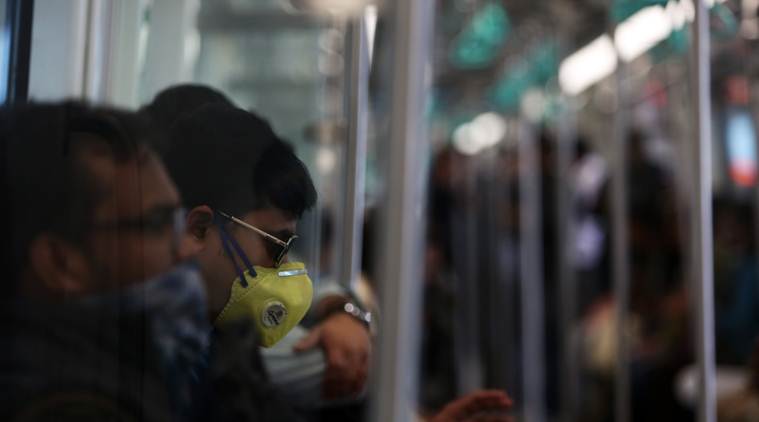 A total of 10 persons who tested positive, including three from Kerala, five from Uttar Pradesh and one each from Rajasthan and Delhi, have recovered and been discharged. (Express photo/Gajendra Yadav)
A total of 10 persons who tested positive, including three from Kerala, five from Uttar Pradesh and one each from Rajasthan and Delhi, have recovered and been discharged. (Express photo/Gajendra Yadav)
PM Modi would lead India at the SAARC video-conference. In a tweet Saturday night, he said, “Timely action for a healthier planet. Tomorrow at 5 PM, leaders of SAARC nations will discuss, via conferencing, a roadmap to fight the challenge of COVID-19 Novel Coronavirus. I am confident that our coming together will lead to effective outcomes and benefit our citizens.”
Timely action for a healthier planet.
Tomorrow at 5 PM, leaders of SAARC nations will discuss, via conferencing, a roadmap to fight the challenge of COVID-19 Novel Coronavirus.
I am confident that our coming together will lead to effective outcomes and benefit our citizens.
— Narendra Modi (@narendramodi) March 14, 2020
With SAARC almost defunct as India took a hard position on Pakistan’s role in terrorism, Modi’s offer on Friday took the neighbouring countries by surprise. While the number of coronavirus cases is relatively less in South Asia, the density of the population, the absence of robust public health infrastructure and lack of public hygiene are seen as challenges, and would come up at the video-conference.
The G-7 leaders are planning to have a video-conference summit too, on Monday.
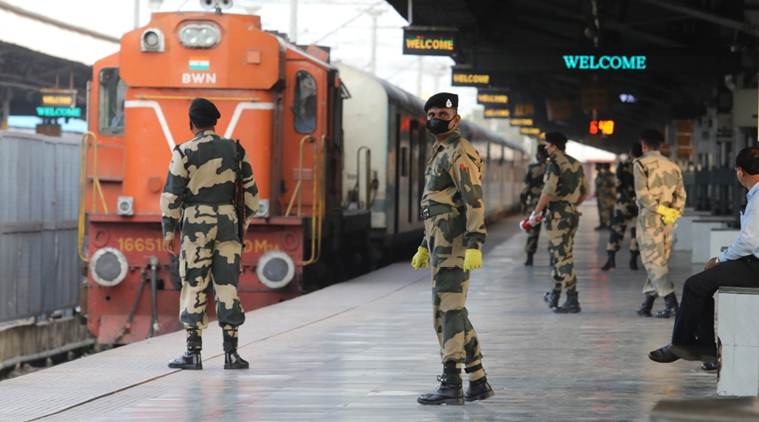 CRPF personnel wear masks while on duty at a railway station in Kolkata. (Express photo/Partha Paul)
CRPF personnel wear masks while on duty at a railway station in Kolkata. (Express photo/Partha Paul)
Diplomats of at least three SAARC countries told The Sunday Express they were looking forward to cooperation on the issue. Within hours of the PM’s tweet, leaders from Nepal, Sri Lanka, Bhutan, the Maldives, Afghanistan and Bangladesh welcomed the initiative. The SAARC Secretariat called Modi’s proposal “timely”.
A State Minister for Health, Mirza is leading Pakistan’s campaign against the coronavirus. He earlier served as Director, Health System, at WHO. Pakistan’s high-powered National Security Committee Friday took several decisions to boost efforts against coronavirus, including closing its western borders with Afghanistan and Iran. It also announced that while the Kartarpur corridor would remain open for Indian pilgrims, it was being shut for Pakistani visitors.
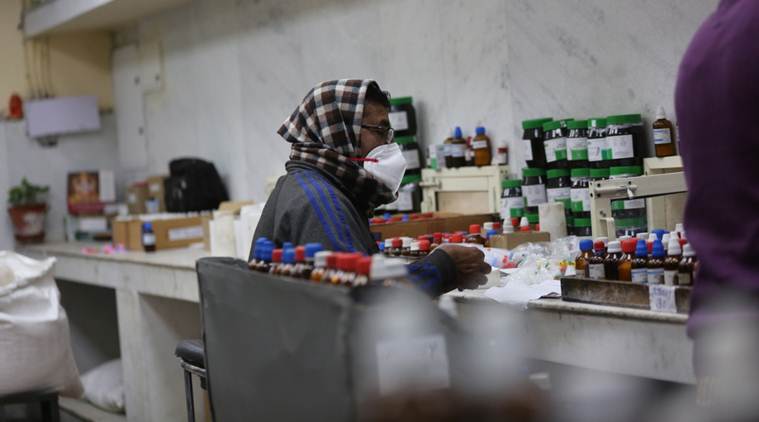 The confirmed cases in India include 17 foreigners. (Express photo/Tashi Tobgyal)
The confirmed cases in India include 17 foreigners. (Express photo/Tashi Tobgyal)
After India, Pakistan has the highest number of positive cases among SAARC countries (30), followed by Maldives (8), Afghanistan (7), Bangladesh (3), Sri Lanka (2), and Nepal and Bhutan with one case each. New Delhi has suspended bus and train services to Bangladesh.
The confirmed cases in India include 17 foreigners. Contact tracing of the 84 positive cases has led to identification of more than 4,000, who are under surveillance, the Health Ministry said.
On Saturday, the government first announced Rs 4 lakh as compensation for kin of those dying of the disease, but backtracked quickly on this as well as the announcement that treatment expenses of coronavirus patients will be borne from the SDRF.
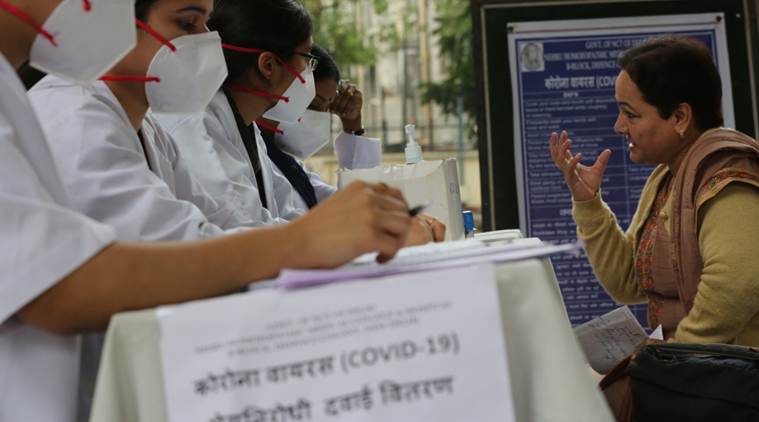 Contact tracing of the 84 positive cases has led to identification of more than 4,000, who are under surveillance, the Health Ministry said. (Express photo/Tashi Tobgyal)
Contact tracing of the 84 positive cases has led to identification of more than 4,000, who are under surveillance, the Health Ministry said. (Express photo/Tashi Tobgyal)
In revised orders issued a few hours later, the Home Ministry announced that the SDRF will be used for provision of temporary accommodation, food, clothing, medical care etc for those affected and sheltered in quarantine camps (other than home quarantine) or for cluster containment operations, at notified rates. The fund will also be used to set up additional testing laboratories and to procure items like personal protection equipment, thermal scanners, ventilators, air purifiers and consumables at government hospitals. The state government would have to fund expenses above the specified ceiling under the SDRF for each item.
There was no clarity on why the orders were revised.
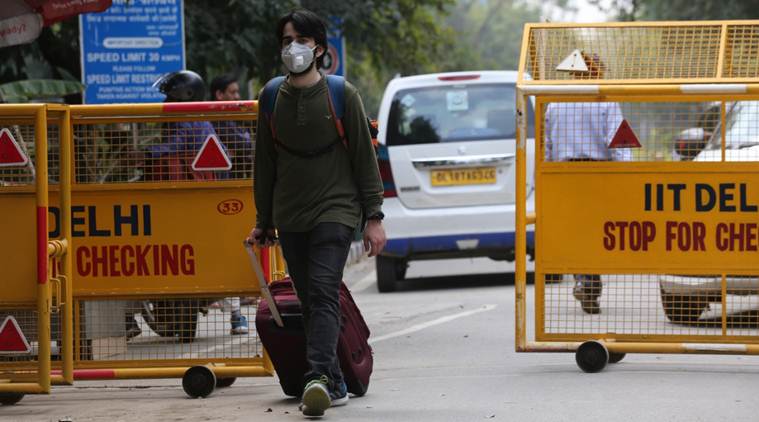 New Delhi has suspended bus and train services to Bangladesh. (Express photo/Tashi Tobgyal)
New Delhi has suspended bus and train services to Bangladesh. (Express photo/Tashi Tobgyal)
The government had earlier invoked the Epidemic Diseases Act of 1897, with Health Secretary Preeti Sudan later sending a letter to chief secretaries and health secretaries of all states and Union territories emphasising that while the Act had been invoked, “We have to make it very clear that there is no epidemic of COVID 19 in the country.”
Kerala with 19 cases (three discharged) and Maharashtra with 14 official cases are the worst affected. On Saturday alone, 106 people were hospitalised in Kerala, while the state started supply of food directly to houses of those under observation. Chief Minister Pinarayi Vijayan said passengers in trains entering the state would be examined.
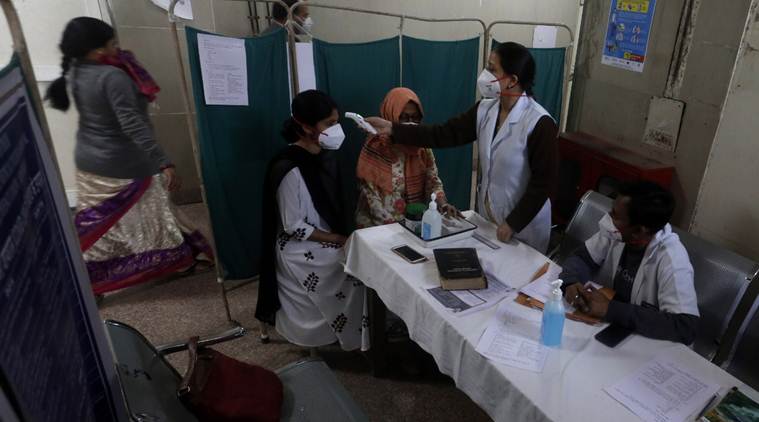 Kerala with 19 cases (three discharged) and Maharashtra with 14 official cases are the worst affected. (Express photo/Tashi Tobgyal)
Kerala with 19 cases (three discharged) and Maharashtra with 14 official cases are the worst affected. (Express photo/Tashi Tobgyal)
The fourth case to test positive in Rajasthan is a 24-year-old man who returned from Spain on Saturday. Rajasthan Additional Chief Secretary, Health, Rohit Kumar Singh said, “He flew in to Delhi from Madrid and then from Delhi to Jaipur. We are getting the manifest of both the flights.” He is the fourth case to test positive in the state.
The second positive case in Telangana is of a person who arrived in Hyderabad from Italy on March 7 and cleared airport screening. He developed fever on March 9 and his samples tested positive on Saturday.
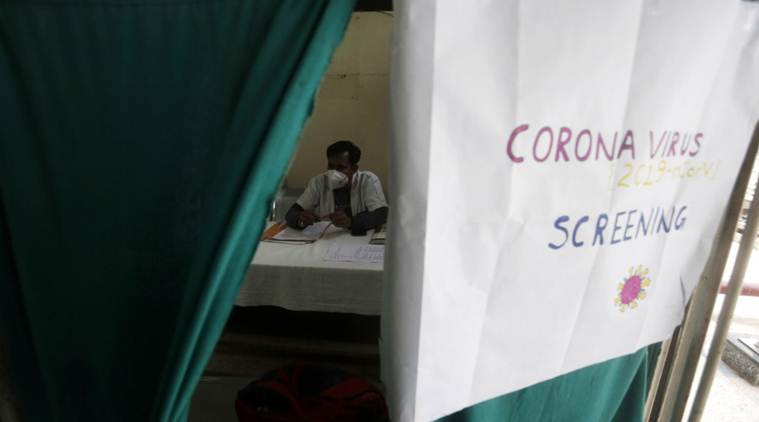 There were reports of a suspected coronavirus case dying in Buldhana, but his test results are not back yet. (Express photo/Tashi Tobgyal)
There were reports of a suspected coronavirus case dying in Buldhana, but his test results are not back yet. (Express photo/Tashi Tobgyal)
The two deaths so far have been of a 76-year old man, who died in Kalaburagi in Karnataka on Tuesday, and a 68-year-old woman who died in Delhi on Friday. After the family of the 68-year-old woman faced problems with her cremation, the Union Health Ministry began work on framing guidelines for handling bodies of victims.
There were reports of a suspected coronavirus case dying in Buldhana, but his test results are not back yet. The 71-year-old, with a history of severe diabetes, hypertension and kidney ailments, returned from Saudi Arabia three days ago and had been isolated after developing high fever. Officials said they have isolated 14 of his contacts.